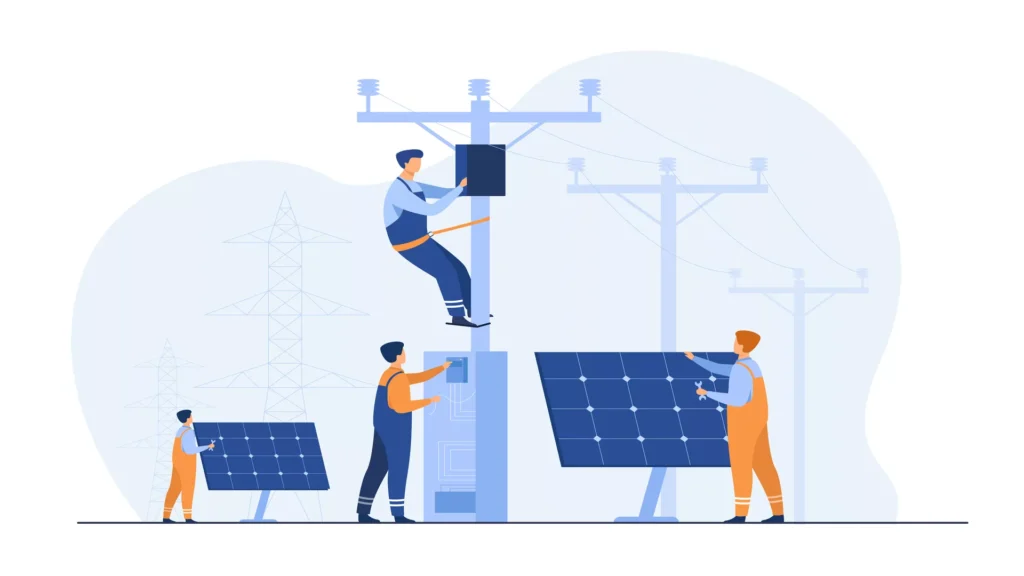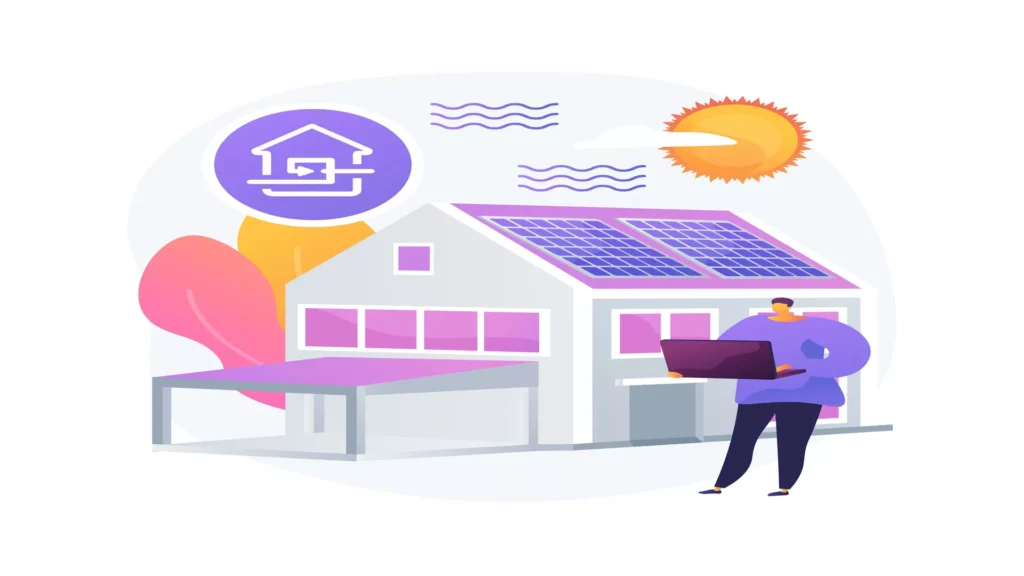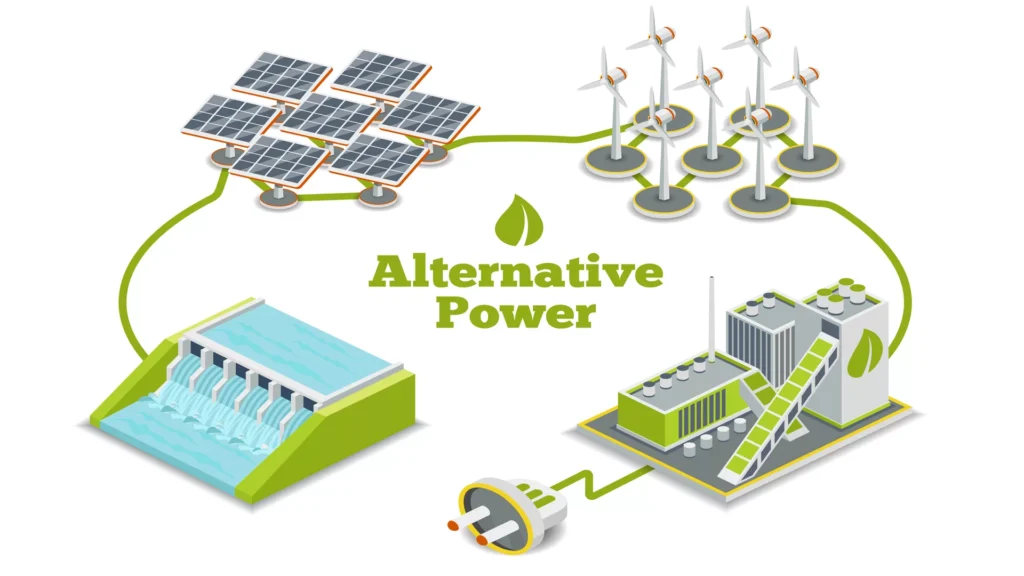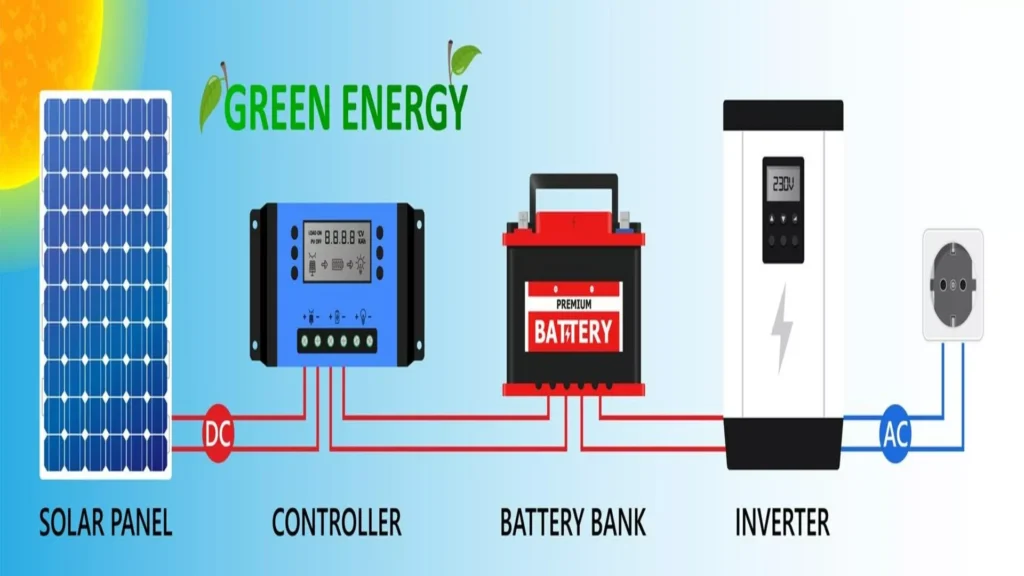
NET METERING BASIC CONCEPT:
Net metering is a process that allows home and business owners to generate their own electricity and get compensated for it. It is an exciting way to reduce electric bills, while potentially earning money and helping the environment. It is a win-win situation for those who choose to take advantage of it. Net metering is the process of a homeowner or business owner sending excess electricity generated from their solar panels, wind turbines, or other renewable energy systems back to the grid. This excess electricity is then used by other customers in their community, allowing them to save money on their utility bills. In exchange for the excess electricity, the utility company pays the homeowner or business owner for the energy they generate. Net metering is becoming increasingly popular, as it is a great way to reduce energy costs, while also helping the environment. In this article, we will discuss what, why, and how net metering works, so you can decide if it’s right for you.
What is net metering?
Net metering is an electric billing system that allows you to use the power grid to store surplus energy generated by your solar panel installation. Net metering credits you for the electricity produced by the solar panels that you do not consume.

In other words, when solar panels generate more electricity than your house consumes, it is referred to as “net metering.” That electricity is fed back into the grid, and the solar owner receives credit for it.
When your panels aren’t producing enough energy on a rainy or cloudy day, the power grid will supply your house with electricity and calculate that electricity against the credits you’ve saved over time. You will be charged for your “net” energy use as a solar client only. Net metering is the underlying policy of the solar business
Only 20–40% of a photovoltaic system’s production is exported to the utility grid, and this exported solar power supports loads of local consumers nearby.
What is the mechanism of net metering?
Assume you put in a net-metered solar panel installation. During the day, your solar panels produce more electric power than is needed. The excess is routed back to the utility grid, effectively running your electric meter backward. On the contrary, when more electricity is used than your solar panels produce, whether at night or on a cloudy day, you draw power from the grid, causing your meter to run forward.
At the end of each month or even a year, you are billed for the difference between what you put on the grid and what you drew off the grid. The whole process is hence termed “net metering.”

With the right-sized solar panel system, you are able to generate enough electricity to power your home for a whole year. The energy produced by your solar panels, on the other hand, will vary throughout the year, with more in the brighter summer months and less in the winter when there is less sunlight and sunsets earlier. Net metering offsets seasonal fluctuations in solar production by crediting excess power generated by your panels and allowing you to consume it later.
Why is net metering important?
Net metering is crucial for solar owners since it both saves and creates money! This policy influences the overall cost of your solar system and contributes to your estimated 25-year solar savings. Putting the net metering regulation in place motivates more individuals to use alternative energy.
Net metering is intended to serve two key purposes: first, to encourage wider solar adoption across the country; and second, to ensure that utilities and the whole power system can benefit from the flood of low-cost solar energy in the grid. Solar energy helps balance the cost of purchasing energy from other sources, particularly during the summer season. In the summer, electricity is usually supposed to be the most costly in the sunniest and hottest months of the year.

1. Customers Getting Hold Over Their Electric Bills
Net metering enables electricity consumers to create their own clean and efficient power. Most solar users generate more electricity than they consume during the day; net metering helps them transfer that electricity to the grid and lower their future electricity bills.
2. Providing Employment and Promoting Private Investment
Net metering generates significant economic advantages in terms of employment, revenue, and investment. Net metering stimulates the need for energy production, which can provide jobs for the solar supply chain’s installers, manufacturers, and electricians. Today, the solar business employs over 230,000 Americans, largely due to powerful state net metering rules that have helped the industry grow.
3. Keeping the Power Grid Safe
Unfortunately, there are some utilities that consider net metering plans to be an income loss. However, net metering regulations and policies flatten the usage curve for power and help electric utilities effectively manage excess electricity loads. Net metering lessens the burden on distribution networks and eliminates losses in long-distance power transmission and distribution by increasing production close to the point of use.
Several cost-benefit surveys conducted throughout the state show the benefits of solar to the domestic economy and the overall electrical grid. If you require solar power consultations, please book our free solar services and get rid of high utility bills.
How does net metering affect power bills?
In general, most households generate extra power during the summer and consume more of the grid’s electricity during the winter. Because these production differences are highly predictable, your utility will not ask you for a monthly verification if you generate more than you require. Instead, you will collect additional credits in the summer months in order to draw on them at night and throughout the winter season as needed.
Your system may create enough power to meet your entire energy demand for a year with the appropriate design, even if you generate considerably more than you require in certain months and less in others. When your solar system produces more electricity than you need in a month, you will be credited for the net electricity in kilowatt-hours that you returned to the grid. If you create less power than you consume in a specific month, you must purchase the difference from your utility. In these cases, you will pay for the power you consume, excluding any extra electricity generated by your solar panels.
Net metering in other forms

While conventional net metering is the most common method of receiving credits for solar electricity produced, there are different options available based on where you are living as well as which utility provider your state has.
1. Buy-all or Sell-all type
Unlike other metering arrangements, the buy all/sell all approach allows consumers to sell 100% of the power produced by their solar panels to the electricity provider. In exchange, they receive 100% of their home’s electricity at the market rate from their utility.
For this sort of net metering, two different meters are necessary, which implies that the customer will pay the difference between the amount produced and the amount used. You do not directly use any of the electricity generated via your panels while using the buy-all or sell-all forms of net metering.
2. Net billing
This form of net metering is more commonly used in commercial applications. Net billing lets you consume the electricity produced by your solar panels in conjunction with the surplus power supplied to utility providers. However, you cannot use credits on upcoming billing cycles with this kind of net metering.
Conclusion:

Net metering is the ideal solar policy since it enables you to save every unit of electricity produced by solar and consume it from the utility grid at a later time. In fact, by balancing your demand for grid power, you can save big bucks over the lifespan of your solar panel installation. Although net metering isn’t the only means to credit households for installing solar panels, it is probably the most prevalent and efficient solar policy. Stick with us to find out if your state supports net metering, and be sure to take advantage of our free solar consultation services.



